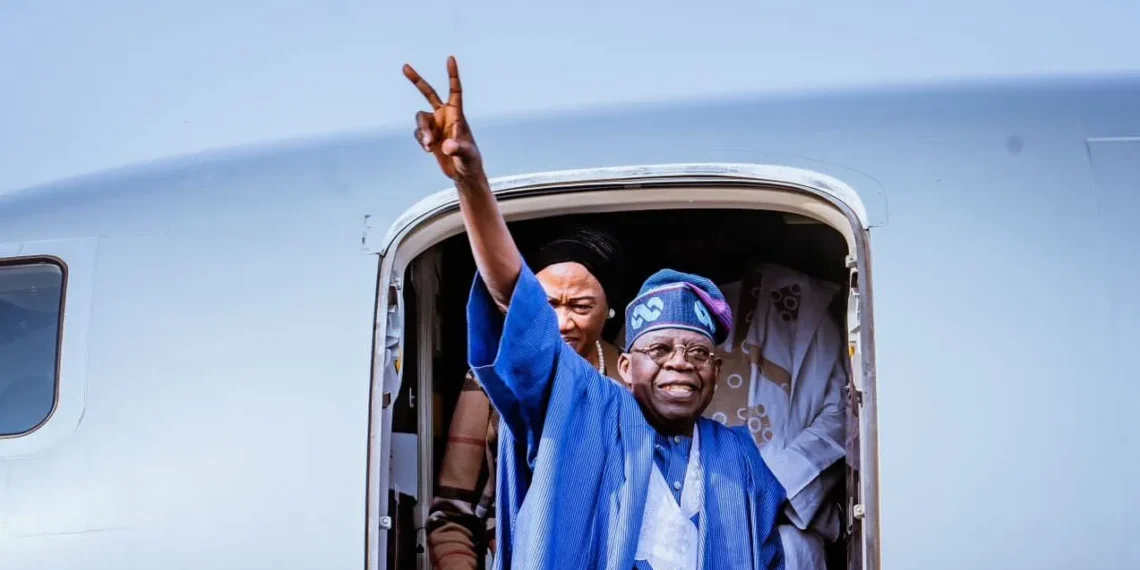President Bola Ahmed Tinubu’s state visit to Saint Lucia has sparked mixed feelings across the Caribbean and deepened Nigeria’s strategic footprint in the Global South. While some reactions at home have been marred by misinformation and political cynicism, Special Adviser to the President on Information and Strategy, Bayo Onanuga, has clarified that the visit is a deliberate diplomatic move designed to strengthen Nigeria’s cultural, economic, and political ties with the Caribbean nation and the wider CARICOM bloc.
According to Onanuga, the visit is not just ceremonial but rooted in historical and strategic imperatives. Saint Lucia shares strong ancestral ties with Nigeria, with waves of migrants from present-day Nigeria settling there in the 19th century and shaping the island’s cultural and religious identity. President Tinubu’s visit reawakens those bonds and opens a new chapter in people-to-people diplomacy.
Saint Lucia is more than just a tourist destination; it is the headquarters of the Organisation of Eastern Caribbean States (OECS) and a gateway to the 15-member CARICOM bloc, which boasts a combined GDP of over $130 billion. President Tinubu’s engagement with this region positions Nigeria at the heart of a vibrant economic and diplomatic corridor, aligning with his administration’s Four D’s foreign policy focus: Democracy, Development, Diaspora, and Demography.
Onanuga highlighted that Nigeria’s connection to Saint Lucia runs deep. Notably, Sir Darnley Alexander, a native of Saint Lucia, served as Nigeria’s Chief Justice from 1975 to 1979. He was instrumental in shaping Nigeria’s legal system after arriving in 1957 and rising through the ranks of public service. His son, Michael Alexander, served as a medical officer in the Nigerian Army during the civil war, while another Lucian, Neville Skeete, played a major role in designing the Central Bank of Nigeria headquarters.
President Tinubu’s visit also supports the African Union’s Sixth Region agenda, which recognises the African diaspora as a key development partner. The cultural impact of Nigeria is already being felt in Saint Lucia through Afrobeats, Nollywood, and literature, all of which are increasingly embraced in the Caribbean. On the Friday preceding Tinubu’s arrival, Nigerian music dominated the airwaves during the iconic Gros Islet Street Party, a sign of Nigeria’s rising cultural influence.
In his remarks, Onanuga also emphasised the shared democratic values between Nigeria and Saint Lucia. The island is a stable parliamentary democracy and welcomed President Tinubu as a “fighter for democracy” during live coverage of his arrival on the National Television Network (NTN). Tinubu’s pro-democracy record continues to resonate across borders.
Related Articles:
- Tinubu to visit Kaduna to inaugurate major projects
- President Tinubu storms Anambra for One-Day visit, commissions landmark projects in Awka
- Peter Obi slams President Tinubu’s Benue visit, says it lacked compassion, solemnity
President Tinubu is also expected to visit Sir Arthur Lewis Community College, reaffirming his commitment to education and youth development. Nigerian Technical Aid Corps (TAC) officials who are part of his delegation will explore further areas of cooperation. TAC professionals have long supported African, Caribbean, and Pacific countries with skilled manpower, showcasing Nigeria’s capacity to offer technical support and development expertise.
As part of the visit, Saint Lucia’s Prime Minister will host a special reception at the official residence, where President Tinubu will interact with members of the Nigerian community on the island. This engagement offers an opportunity to discuss shared concerns and deepen ties between Nigeria and its diaspora.
Onanuga stressed that Tinubu’s visit is a rare diplomatic milestone for Saint Lucia. Since its independence in 1979, the country has hosted fewer than ten official state visits. The last African Head of State to visit was Nelson Mandela in 1998 during the CARICOM Heads of Government Summit. Tinubu’s presence 27 years later marks a significant moment in African-Caribbean relations.
In a high-profile diplomatic gesture, President Tinubu will address a special joint session of Saint Lucia’s bicameral Parliament at the Sandals Grande Saint Lucian Conference Hall. At the same venue, former U.S. President Bill Clinton delivered a keynote address in 2003. The hall now bears Clinton’s name, underscoring its prestige as a stage for global leaders.
Onanuga concluded that the visit symbolises Nigeria’s readiness to reclaim its role as a global leader in South-South cooperation, cultural diplomacy, and diaspora engagement. Tinubu’s trip to Saint Lucia is not just a state visit, it is a powerful message to the world that Nigeria is forging stronger alliances to drive development, preserve shared heritage, and champion democracy across continents.






